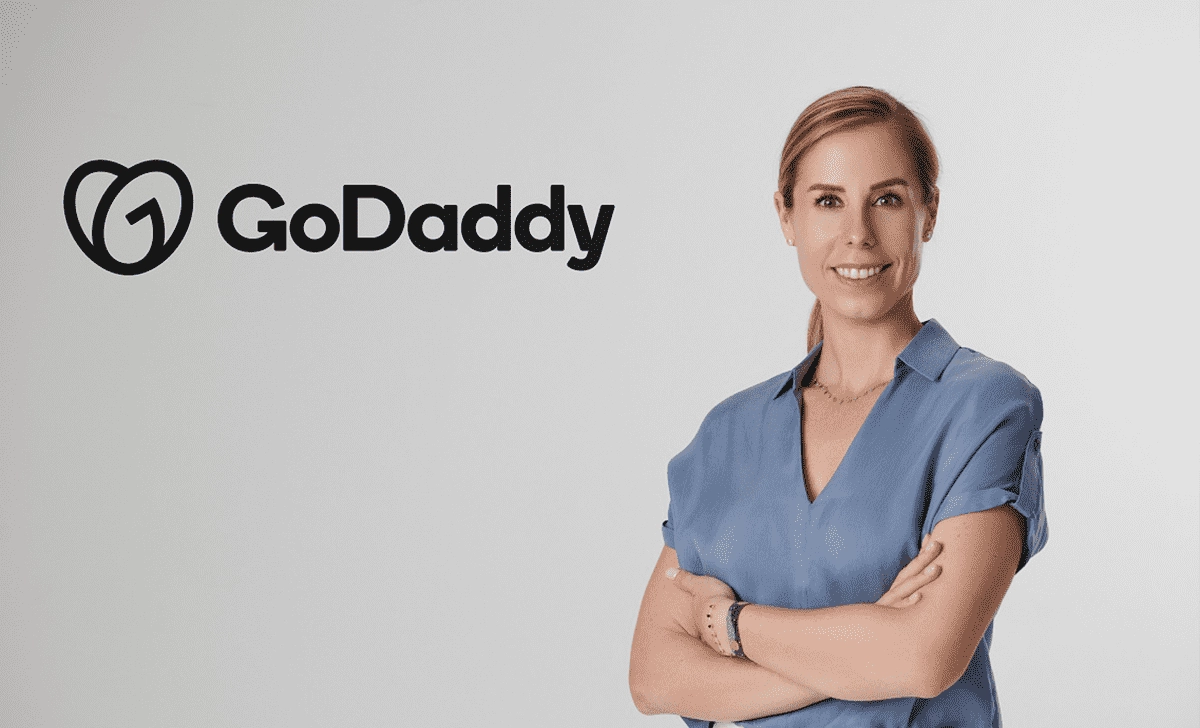Startups
Stanford-born Startup Strives to End Elderly Social Isolation

In the midst of calls to break up Facebook, struggling IPOs, and some fan drama over the Game of Thrones finale — no spoilers we promise — some people are working away at smaller, very specific issues. There are many thrones to conquer, but focusing on particular problems goes a long way when it comes to entrepreneurship.
We’ve got Stanford alumnae building a platform that provides companionship to aging loved ones. Former execs of GBH Communications gathered video conferencing data to prevent those dreaded video call disconnects. And last but not least, an ex-Googler helping policyholders manage their auto insurance.
Get ready for a roundup of startups that know exactly what they’re doing, and whom they’re helping!

Mon Ami
Ending Social Isolation for Aging People
Marketplaces for shared rides, rental spaces, e-commerce, and food delivery are becoming more and more abundant. There are, however, other overlooked pressing issues that affect different communities. With 50 million Americans over the age of 65, senior citizens are affected by problems like social isolation, which is what Mon Ami is aiding for one home at a time.
French for ‘my friend’, Mon Ami is aptly named. The San Francisco-based online platform brewed at Stanford connects elderly family caregivers with ‘Activity Companions’ who provide IT help, transportation, and visits to play games that aid in dementia healing. From socialization to brain stimulation to emotional support, the benefits are many. Check out Mon Ami’s Companion Diaries for some heartwarming stories.
Founding Team
It all started with these two Stanford-ettes. One with a track record in product and digital media, the other with experience in hospice care and health. Madeline Dangerfield-Cha and Joy Zhang met in Stanford School of Business for their MBA in 2016.
Madeline graduated from Columbia as a creative writer to become a digital media and analytics whiz. She worked at Essence for five years, acquiring digital media positions to eventually become their Director of Analytics. She is passionate about using technology for effecting change and believes in “the magic at the intersection of generations” that sprouted Mon Ami. She also believes in the power of gaming and plays designed to support elderly wellbeing, particularly for improving brain activity and social interaction for those suffering from dementia.
Joy Zhang is no newbie to elderly care. She has almost a decade of experience in welfare and aging. She was a World Health Organization consultant for healthy aging innovation. She was also an Associate at Skoll Foundation, which invests in social entrepreneurs driving large-scale impact. An advocate for the aging population, Joy notes how vulnerable they are especially in the event of an emergency or natural disaster. “Social isolation is a major risk factor for older adults, and social connections are the most important asset, especially during a crisis,” she wrote.
Madeline and Joy were recently joined by CTO Steve Fram to lead the tech arm. Before Mon Ami, Steve was CTO of Caring.com, a marketplace that helps caregivers of aging loved ones find the services they need. He was VP of Engineering at BabyCenter of Johnson & Johnson. He was also Technical Director of UNDP’s Rio Earth Summit, the biggest environmental conference ever held which gave the world its climate change framework and sustainable development blueprint. He holds a BS in Mathematics and Zoology from the University of Michigan, where his undergrad research focused on “the morphology of the basal ganglia” and “identifying mathematical errors in brain/bodyweight allometry.”
Trellis
Managing P&C Insurance Services
This San Francisco-based tech startup is a little stealthy and has only been brewing for five months. It’s neither the seed-to-sale Cannabis software Trellis nor the board game of vines, blooms, and flowers! Word on the street is that this Trellis is providing property and casualty insurance services. With more than 80 companies on Crunchbase using Trellis as part of their name, we dug into the meaning of the word: A metal or wooden framework made to support vines and fruit trees. Why Trellis though? Our AI wizards are still trying to figure that one out.
Founding Team
CEO Daniel Demetri is a serial entrepreneur with a blend of expertise in computer science and financial services skills, which he learned at Harvard and honed at Google, Earnest Inc., Angelo, Gordon & Co, and KAYAK.
He previously co-founded States Title, a real estate insurance settlement startup which raised $10.2 million in seed funding and acquired North American Title Company early this year. As ex-Product Lead at Earnest Inc., Daniel was on a mission to democratize high-quality financial services where he created “the best-in-class student loan refinancing product.”
Daniel proposes insightful ways to overcome decision-making hardships and deal with the mind’s working memory limitations. “Confronted with 24 pieces of data, we physically have no choice but to narrow our focus,” he writes recommending compressing complexity with cognitive reasoning, discarding less critical considerations and using gut feeling for difficult trade-offs. Daniel provides a super fact-based opinion piece but you’ve got to be careful with the gut feeling one as some neuroscientists are arguing against Malcolm Gladwell’s Blink!

VisibilityOne
Cutting Video Conferencing Troubleshooting Time
VisibilityOne is a patented video conferencing monitoring solution that provides real-time performance and health data across multiple platforms, including Zoom, Cisco, and Poly. The California-based startup simply aims to make video collaboration management easier, minimize video call disconnection, and reduce IT troubleshooting time by 90% through its data collector.
The startup was awarded the prestigious “Excellence in Product Innovation”from the National Systems Contractors Association. “These companies may not be unicorns, but they’re some of the workhorses behind countless organizations of all sizes,” says entrepreneur Rebekah Ilif in her Inc. piece, which featured VisibilityOne.
Founding Team
This powerful team of industry veterans is armed with decades of experience and a career track at leading firms. Jose De La Paz, CEO, holds three patents for his work in the communication and video conferencing space which spans over 20 years. Jose led GBH Communications as CTO and COO until its acquisition by SKC Communications in 2018.
“I will continue to invent, create, and dream of ways to push the boundaries of technology,” he told Forbes. When he is not on tech duties, Jose plays video games with his five sons, and travels the world with his family. He enjoys a good old cup of coco with Mexican abuelita, paired with butter-toasted bolillo. Are you drooling too?! He also sparks his creativity with a blank canvas and some spray paint.
An art enthusiast, Jose admires the stories portrayed in the work of Banksy, the UK’s mystery street artist!
Chief Risk Officer, Von Bedikian, founded his first company, GBH Communications, at the age of 26 and reigned as President for 33 years. What kicked off as a one-man reseller, grew to become an industry leader, globally recognized value-added reseller for Fortune 100 clients, including Plantronics, Polycom and GN Netcom. He also served as President of Direct Access Systems, a leading supplier of conferencing solutions focused on reseller markets. He holds a BA in Business Administration and Marketing from San Jose State University. When he is not building long-standing successful tech firms, Von loves to unleash his creative juices in oil painting.
A tech architect, with two-decade expertise in data and cloud architecture, CTO Frankie Alvarado was also former GBH Communications, where he headed the company’s market strategies of emerging technologies. Frankie was BT Lead Technology Engineer in London, where he played a key role in making the 2012 Olympics the most connected.
Frankie describes “communication” as the biggest and easiest problem to solve. “The simplest way to get the ball rolling into optimizing your technology and your user rates is to communicate. [Everything] starts from that — which is kind of what video conferencing is all about, when you think about it,” he wrote.
When he is not too busy building scalable technologies, you’ll find Frankiecleaning local beaches or holding competitive video game tournaments with his children.
As you can tell, startups that are focused on specific technical or human needs are the ones that make it past the eighth season — we mean, past ideation. Our stargazing powers tell us that these founders will conquer all the thrones in their way.
Startups
Rising from Debt: Al Nashmiah Farms’ Battle to Empower Indebted Women

Al Nashmiah Farms, committed to aiding women burdened by debt and facing the threat of incarceration, offers a novel solution for them to earn their way to freedom. Under the leadership of Razan Harb, motivated by her family’s financial struggles, the farm has become a pivotal force in rescuing those ensnared in the debt trap, providing them with employment and a sense of purpose.
Harb, observing the plight of many women who took loans in hopes of improving their families’ fortunes, only to be overwhelmed by unfortunate circumstances, economic downturns, and oppressive taxes, has established a farm that serves as both a source of employment and a supplier of high-quality produce to major markets.
The farm’s operations include the provision of household essentials, emphasizing the importance of quality through methods such as nitrogen sterilization and the use of healthy packaging. Additionally, Harb has initiated work-from-home opportunities, enabling women to engage in the packing of vegetables and fruits for market and direct sales, thereby offering a sustainable model for economic independence and recovery from debt.
News
GoDaddy’s Global Markets VP Predicts Egypt’s E-commerce to Hit $9.88 Billion by 2028

Selina Bieber, the Senior Director of Global Markets at GoDaddy, has predicted a significant increase in Egypt’s e-commerce revenue. By 2028, it could reach $9.88 billion.
Godaddy is forming strategic partnerships and launching initiatives to help local entrepreneurs. These efforts align with Egypt’s digital transformation goals and its Vision 2030.
In an interview with the Arabic financial news “Amwal Al Ghad,” Bieber spoke about GoDaddy’s plans and how they match Egypt’s 2023 strategy. She highlighted the company’s aim to provide effective, easy-to-use digital tools and services. By 2024, GoDaddy wants to serve more customers in Egypt by making its digital tools more widespread.
The company is working closely with the Egyptian government, especially the Ministry of Planning. They are offering training programs to improve the digital skills of startups and existing businesses. GoDaddy’s services in Egypt include domain registration, web hosting, e-commerce solutions, and digital marketing tools.
Recent surveys support Bieber’s positive outlook for e-commerce in Egypt. They show a clear trend towards digital strategies among small businesses. Many are realizing the importance of having an online presence for their growth and success.
As GoDaddy continues its partnerships and supports government digital initiatives, its influence on Egypt’s digital landscape is growing. The company is committed to sustainability and reducing its carbon footprint. It aims not just for business growth but also to contribute to a sustainable and thriving digital economy in Egypt.
The 2028 projection indicates a vast potential for e-commerce, with GoDaddy playing a key role in this digital evolution.
Apps
Saudi Fintech ‘Lendo’ Raises $28M in Series B Funding

Lendo, a Saudi Arabia-based shariah-compliant debt crowdfunding marketplace, has raised SAR 105 million ($28 million) in Series B funding led by Sanabil Investments, a wholly-owned company by the Public Investment Fund (“PIF”). The round saw participation from Shorooq Partners, AB Ventures and other investors.
Lendo is a Shariah-compliant, debt crowdfunding marketplace that helps pre-finance outstanding invoices for businesses in Saudi Arabia. The platform is a community of creditworthy borrowers and sophisticated investors looking for alternative investments. The platform is licensed by the Saudi Central Bank (SAMA). Lendo will use the funds to support its fast-growing customer base in Saudi Arabia which has grown 3X year-on-year, introduce more innovative financing products, and accelerate market expansion plans.
“With this funding round, we are going to expand into new markets, support new and current customers, and launch new Shariah-compliant products, all the while continuing to innovate the marketplace for digital lending. We are going to make financial services more accessible, affordable, and inclusive for everyone. I am excited to see what the future holds for our company,” said Osama Alraee, CEO, and co-founder of Lendo, who also disclosed its plans for an IPO within the next few years.
Alraee has also expressed his gratitude to SAMA (Saudi Central Bank), Fintech Saudi, MCIT, Misk, and Monshaat for their unwavering support, emphasizing the pivotal role they have played in advancing financial inclusivity and fostering innovation in partnership with Lendo to reshape the financial landscape. Their dedicated efforts in advancing financial inclusivity and fostering innovation have been invaluable to us. We greatly appreciate their partnership in our mission to transform the financial landscape
Commenting on the announcement, Sanabil Investments said: “Lendo is a leading fintech company that is transforming the financial services industry in their specialist area of Shariah-compliant digital lending for SMEs. The Lendo team, especially the founders, Osama and Mohamed, have achieved a significant amount in a relatively short period, and we are eager to join their journey of increasing access to flexible financial solutions in Saudi Arabia and the region at large.”
“The growing demand for alternative, agile, and accessible lending solutions presents a significant opportunity. At Lendo, we are well-positioned to lead the charge in promoting financial inclusion not only in Saudi Arabia but also beyond. By fueling SME growth, we aim to contribute to the realization of Saudi Arabia’s Vision 2030 economic goals and to create a ripple effect of opportunity throughout the MENA region,” said Mohamed Jawabri, COO, and co-Founder of Lendo.
Lendo previously raised a SAR 27 million Series A funding round ($7.2 million) in 2021 led by Derayah Ventures with participation from Seedra Ventures and other investors, bringing the fintech’s total funding to SAR 132 million ($35.2 million).
Since the inception of Dec 2019, Saudi fintech Lendo has processed more than 2,500 financing transactions on its platform, providing over SAR 1 billion ($300 million) in financing to SMEs and generating SAR 140 million ($37 million) returns for investors.
The Small and Medium Enterprise financing landscape in the Middle East and North Africa (MENA) presents a substantial market opportunity as limited financial access continues to restrict the growth of the region’s businesses, with commercial banks hesitant to issue loans to SMEs at scale, resulting in a high percentage of declined financing requests annually. According to the International Finance Corporation (IFC), the SME financing gap is estimated at SAR 19.5 trillion ($5.2 trillion) every year in developing countries.
Lendo’s debt crowdfunding platform aims to bridge the financing gap for SMEs, which aligns with the Saudi Vision 2030 to significantly expand SME lending from 4% in 2018 to 20% by 2030.
The total value of debt crowdfunding in Saudi Arabia surged from 1.4 million SAR in 2019 to SAR 771 million in 2022, marking a remarkable 430% growth, according to SAMA’s annual fintech report 2022.
-

 Startups9 years ago
Startups9 years ago3 Creative Egyptian Women Who Master E-commerce
-

 News10 years ago
News10 years ago11 Talented Egyptian Photographers on Instagram
-

 Campaigns8 years ago
Campaigns8 years agoVodafone Egypt Brings Generations Together, Unlocks 4G Power
-

 Marketing9 years ago
Marketing9 years agoWhich categories will suffer most from increased prices in Egypt?
-

 Apps8 years ago
Apps8 years agoRadio Garden Live Map of The Globe’s Radio Stations
-

 News8 years ago
News8 years agoTop 10 Egyptian Fashionistas to Follow on Instagram
-

 Campaigns8 years ago
Campaigns8 years ago7 Big Stats That Show Which Ramadan Advertisements Resonated Most
-

 Opinion9 years ago
Opinion9 years agoF*** Being a Founder, Be a Follower






